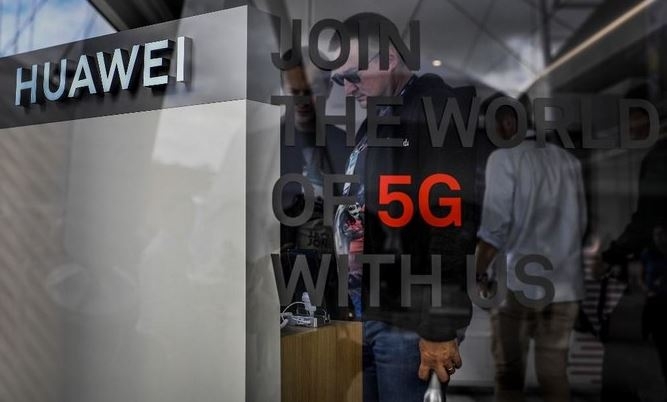EU announces strict 5G rules, but no Huawei ban
EU countries could ban telecoms operators deemed a security risk from critical parts of 5G infrastructure under bloc guidelines issued Wednesday, amid US pressure to shut out Chinese giant Huawei.
The plan, which closely mirrors rules set out by Britain allowing a limited role for Huawei, stops short of barring the company from building the next-generation communications network that provides near-instantaneous data transfers.
It leaves member states with the responsibility to ensure the safe rollout of 5G and warns them to screen operators carefully, saying security of the network will be critically important for the entire EU.
The so-called “toolbox” outlined by the European Commission avoids naming Huawei and does not call for an outright ban on any supplier.
But it urges countries to “assess the risk profile of suppliers” and “apply relevant restrictions for suppliers considered to be high risk” accordingly, including shutting them out of “key assets defined as critical and sensitive.”
It also recommends EU states avoid “major dependency on a single supplier” and “dependency on suppliers considered to be high risk.”
The guidelines are the fruit of months of agonizing within the EU, which has struggled to find a middle way to balance Huawei’s huge dominance in the 5G sector with security concerns pressed by Washington.
Any bans on Huawei will now ultimately be up to individual member states, but the commission’s middle road recommendations give cover to European capitals to resist pleas from Washington.
London’s announcement on Tuesday of a limited role for Huawei infuriated Washington, which says it cannot be trusted with such important infrastructure because it is too close to the Beijing government.
The US has banned Huawei from its own 5G roll-out because of security concerns and threatened to limit intelligence-sharing with London in the event of the firm winning a major role in Britain.
Britain, like the EU, plans to exclude risky operators from “sensitive” locations such as nuclear sites and military bases, but a US official insisted there was “no safe option for untrusted vendors to control any part of a 5G network.”
Huawei is widely viewed as providing the most advanced alternative for super-fast data transfers behind technologies such as self-driving cars and remotely operated factory robots.
Along with European telecom companies Nokia and Ericsson, it is one of the few suppliers capable of building 5G networks.
The commission warned that 5G will offer “more potential entry points” for cyberattacks — a growing threat as more and more critical services such as hospitals and power grids depend on data networks.
“5G will be a ground-breaking technology but it cannot come at the expense of the security of our internal market,” commission vice president Margaritis Schinas said in a statement.
“The toolbox is an important step in what must be a continuous effort in the EU’s collective work to better protect our critical infrastructures.”
Related Posts

